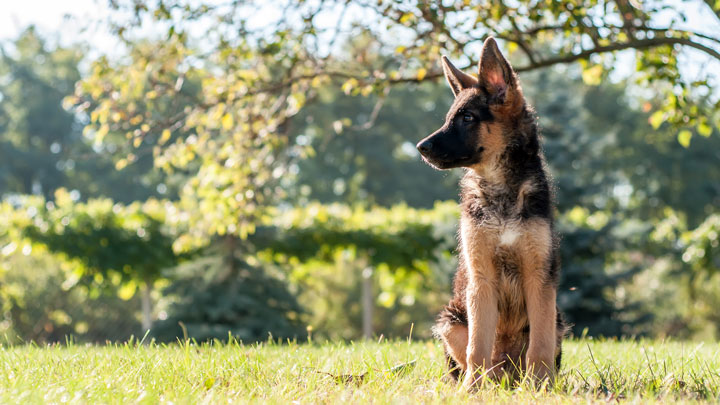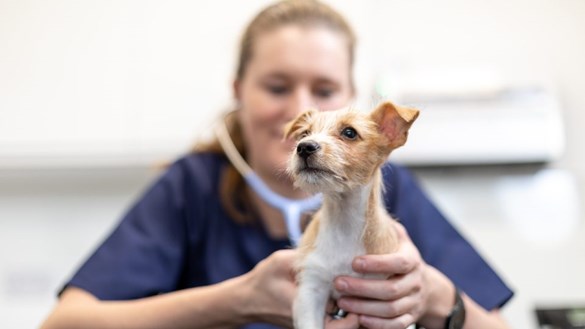Caring For Your New Puppy
Key priorities
It’s exciting when you get a new puppy, but make sure you cover the basics so that you and your puppy can look forward to a happy and healthy future.

Introductions
You will no doubt have met your puppy at least once before you get to welcome them into their new home. Exciting as it is, it’s worth remembering that it will be very overwhelming for your puppy. Try and keep things as calm as possible.
What next?
We’ve got lots of great advice to guide you through those early days. We’ve pulled together the top six things that you need to prioritise to ensure that your new puppy stays happy and healthy.
1. Health Check
It’s important that you book in a health check with your vet as soon as possible. This gives your vet or nurse an opportunity to carry out an examination of your new puppy. They’ll check that your new pet is in the best of health, provide advice for settling your puppy in - as well as being able to answer any questions that you may have.
Medivet are pleased to be able to offer a complimentary puppy health check. Find out more here.
2. Pet Insurance
Medivet don’t sell pet insurance, but we do highly recommend that you arrange some cover as quickly as possible. It is beneficial to cover your pet from a young age, that way if there are any issues in the early days, you will already have cover.
There are many providers available, it’s worth doing some research. We’ve got some advice to get you started – read more here. You can also talk to your vet about free four-week cover.

3. Vaccinations
Most puppies will come from the breeder having had their first vaccination. If you don’t have the details of their first vaccination already, ask your breeder for them, as you will need to provide this to your vet.
Your puppy’s next vaccination will need to be scheduled for 12 weeks of age, and the final vaccination at 16 weeks of age. Your puppy should not be mixing with other dog’s until they’ve had their second vaccination. Read more on puppy vaccinations here.
4. Microchipping
It’s good practice to get your new puppy microchipped as soon as possible and it’s also a legal requirement of dog ownership. It means that if your puppy did go missing, you’d stand a much higher chance of being reunited. Further details here.
5. Socialisation
Socialisation of your new puppy is essential and needs to start as soon as possible. Socialisation is about getting your puppy used to this exciting new world; their environment and also the people, places, sights and sounds that they will come across in everyday life.
The window of opportunity lasts up until your new puppy is 16 weeks old. Taking into consideration that most people bring their puppy home just after they are eight weeks of age – you can see why it’s important to know what you need to do and get started as quickly as possible. Find out what you need to do here.
6. Defleaing and worming
Many people believe that you only need to protect your pet from parasites in the summer months. This isn’t the case. Although fleas are more active in the summer months, overall parasite protection is essential all year round.
For young puppies regular worming is key from an early age, as many will be born with worms that have been passed from their mother. These need to be eliminated as soon as possible.
This is a round-up of the some of the key priorities, but there is still lots to consider. Take a look at our puppy and kitten guide for some pointers on other things that you need to consider.


